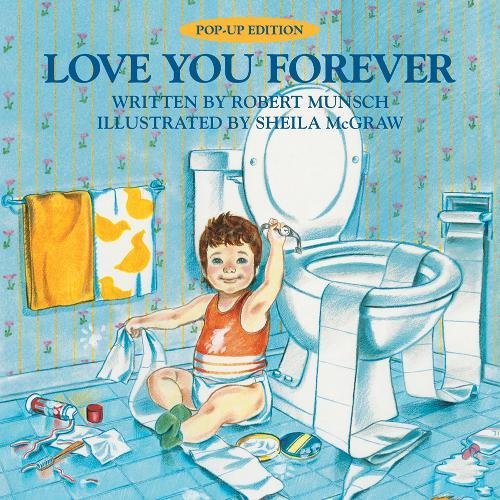Have you ever pondered the depth of a mother’s love? Can a simple story encapsulate such profound sentiments? “Love You Forever” by Robert Munsch invites readers to explore an emotional odyssey that resonates with both the young and the old. A whimsical yet poignant tale, this book has not only touched the hearts of countless families but also faces scrutiny in today’s fast-paced literary landscape. In this review, we will delve into its enchanting narrative, thematic significance, and the challenges it presents to modern readers.
At its core, “Love You Forever” chronicles the relationship between a mother and her son, illustrating the cyclical nature of love over the years. The narrative begins with the mother singing to her newborn son, “I’ll love you forever, I’ll like you for always, as long as I’m living my baby you’ll be.” This timeless refrain serves as an anchor throughout the tale, reinforcing the unconditional love that parents feel for their children. It elegantly juxtaposes the sweetness of infancy with the inevitable aging process, a dance that is both beautiful and heart-wrenching.
As the child grows, the story artfully portrays various stages of life—from rambunctious toddler years to the rebellious teen phase. Each phase is characterized by the inherent challenges of growth and independence, posing a playful question: How does love evolve as children transition into adults? This question permeates the pages of the book, inciting introspection about familial bonds that are often taken for granted.
The charm of “Love You Forever” lies not only in its narrative but also in its universal themes. In a world often diminished by superficial connections, the book invites readers to ponder deeper, more meaningful relationships. It asks us to consider the sacrifices parents make and the unconditional support they provide. These themes, however, are not without their critics. Some argue that the representation of the mother as an eternal caretaker may unintentionally perpetuate gender stereotypes. This brings us to a thought-provoking challenge: In celebrating maternal love, are we relegating the role of fathers and other caregivers to the periphery? The tension between tradition and modern family dynamics is palpable, opening up avenues for discourse among readers.
The simplicity of Munsch’s illustrations, paired with his evocative prose, further enhances the emotional impact of the story. The illustrations convey a tender warmth, effectively complementing the narrative. Each page turn immerses the reader in a realm where love remains unshakeable despite the trials of life. It’s a reminder that, amidst chaos, love can serve as a steadfast anchor. This notion is beautifully captured in the line, “But one day, she died.” This abruptness strikes a visceral chord, compelling readers to confront the mortality of loved ones—a stark reminder that time is fleeting, and the simplicity of love can be both a source of solace and sorrow.
However, the emotional weight of the narrative can pose a challenge to certain audiences. How do readers reconcile the book’s heartwarming message with the sobering reality of loss? The juxtaposition of unending love against the inevitability of death invites reflection on our relationships and how we express love. Readers are left with questions: Are we too caught up in our daily lives to vocalize our affections? Are we invested enough in the relationships that matter most? The book serves as an emotional catalyst, stimulating not just feelings of nostalgia but also a call to action.
As we navigate the complexities of modern life, it’s essential to recognize the significance of articulating love. In the age of social media, where a “like” often substitutes for genuine connection, “Love You Forever” serves as a clarion call to prioritize heartfelt expressions over virtual engagements. It implores us to look beyond our screens and engage meaningfully with our families. This pivotal challenge is not to be underestimated; as individuals, we must strive to balance our bourgeoning digital presence with the nurturing of real-world relationships.
In conclusion, “Love You Forever” encapsulates the essence of familial love through a masterful blend of narrative and illustration. Its enduring charm resonates with readers across generations, yet it invites thoughtful scrutiny. With the playful question of how love evolves and a challenge to confront the complexities of modern relationships, this book transcends the bounds of mere storytelling. It offers a poignant reminder that love, in its truest form, is both timeless and transformative. Whether you are revisiting childhood memories or sharing this tale with the next generation, let it serve as a reminder to celebrate the love shared within your own family each day. After all, love is a journey worth navigating, and “Love You Forever” provides an invaluable map to guide us through the heart’s labyrinth.
